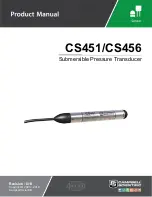
MDS 05-4846A01, Rev. F
SD Series Technical Manual
95
and wait for a poll and response before lowering it again. Connect the
RS-232 line to Pin 4 of the radio’s
COM2
port. This allows each Remote
to be polled once per hour with a significant savings in power consump-
tion.
8.5 User-Programmable I/O Functions
The transceiver can be internally configured to provide three user I/O
functions on the
COM1
and
COM2
data connectors. These signals are
commonly used for RTU resetting or for input monitoring. Once the
transceiver has been properly configured, these pins can be activated
through compatible NMS software, such as InSite.
The jumpering changes required to enable these functions are beyond
the scope of this manual. Consult the factory for further information on
enabling and using these I/O functions.
8.6 Technical Specifications
GENERAL
Frequency Range:
SD4
:
300–512 MHz in one of the following bands:
Band A—350 to 400 MHz
Band B—400 to 450 MHz
Band C—450 to 512 MHz
Band D—300-360 MHz
Specific frequency authorizations are dependent on the type-approval of the radio. Con-
sult factory for details.
Bandwidth:
SD4
: 6.25 12.5, 25 kHz
RECEIVER
Maximum Usable Sensitivity:
–112 dBm at 1x10
–6
BER (9600 BPS)
NOTE: This is a typical sensitivity rating at 9600 BPS. See modem type listing in Section
6.0 for detailed ratings.
TRANSMITTER
Carrier Power:
0.1 Watts to 5 Watts
Power Measurement Accuracy:
+/- 1.5 dB
Duty Cycle:
Continuous
Output Impedance:
50














































